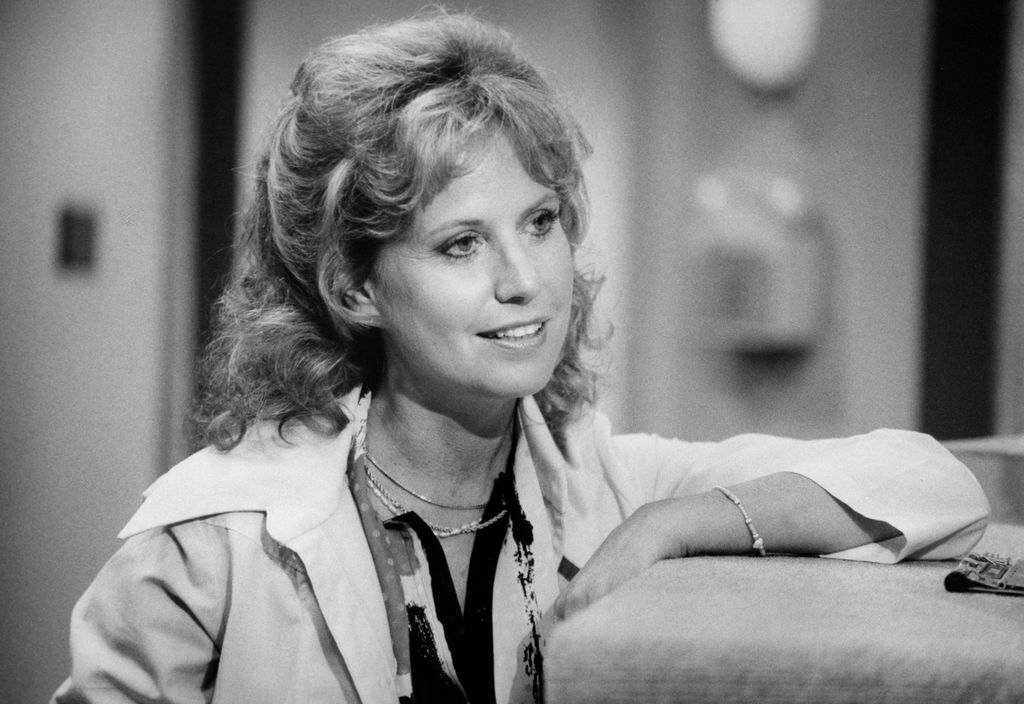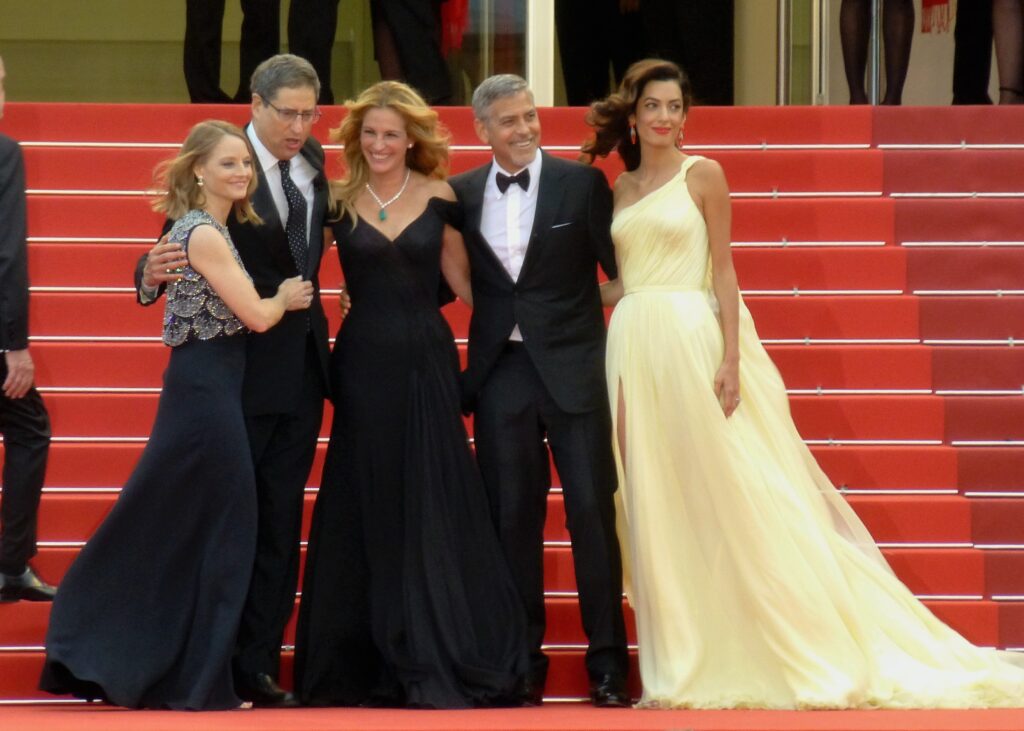
Jodie Foster stands as a singular figure in the annals of Hollywood, whose journey through the demanding landscape of performance began at an exceptionally young age. Her path, distinct from many child stars, was marked by an early immersion in the industry that paradoxically seemed to arm her with a profound understanding of its mechanics and, more critically, the intrinsic value of a guarded personal life. From her first Coppertone advertisement at three years old, Foster developed a precocity and a strategic awareness that would define her career and her approach to fame.
This early, intense exposure to the public eye, rather than consuming her, appears to have fostered a remarkable resilience and a deliberate strategy for self-preservation. Her narrative is less about accidental stardom and more about an ongoing, conscious calibration of her public persona and artistic endeavors. It speaks to a rare agency, a consistent striving to control her own story, even when external forces threatened to dictate it in ways both professional and deeply personal.
The insights gleaned from a childhood spent in front of cameras laid the groundwork for a career defined by intellectual curiosity and an unwavering commitment to authenticity, both on and off screen. As we delve into the initial chapters of her extraordinary life, we witness the foundational moments that forged a star consistently choosing substance over superficiality, and a quiet, purposeful existence over unrelenting celebrity. Her early experiences were the very crucible in which her distinct philosophy was formed.
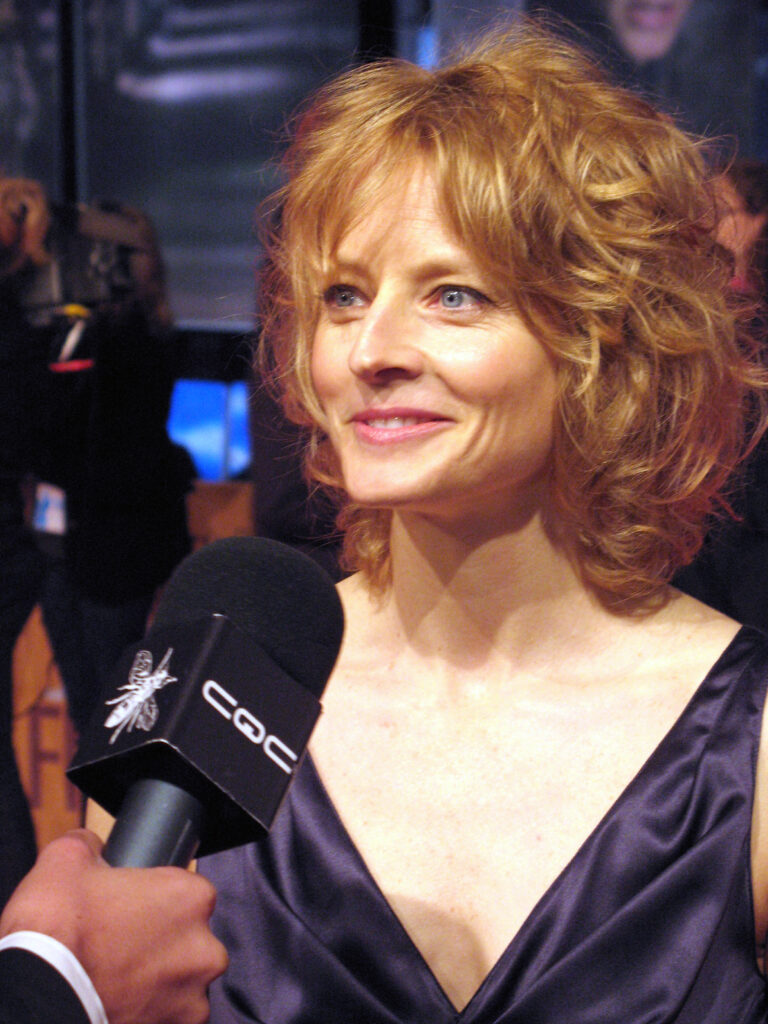
1. **The Genesis of a Star: Child Acting and Early Recognition**
Alicia Christian Foster, born in 1962, embarked on her career at the tender age of three with an appearance in a Coppertone television advertisement in 1965. This seemingly accidental beginning, a result of her mother bringing her along to an audition intended for her older brother Buddy, quickly blossomed into extensive work. The following years saw her appear in over 50 television shows, including notable titles like *Gunsmoke*, *The Doris Day Show*, *My Three Sons*, *Bonanza*, and *Kung Fu*, which positioned her and Buddy as the primary breadwinners for their family.
The depth of her early professional life extended beyond episodic television to recurring roles in popular series such as *The Courtship of Eddie’s Father* and *Bob & Carol & Ted & Alice*. She also lent her voice to Pugsley Addams in *The Addams Family* animated series and starred opposite Christopher Connelly in the short-lived *Paper Moon*. Her initial feature film experiences were predominantly with Disney, appearing in *Napoleon and Samantha* (1972), where she notably suffered an accidental lion grab, and *One Little Indian* (1973). These prolific years, while commercially successful, provided an invaluable and rigorous apprenticeship, shaping her fundamental understanding of the craft and the intricate workings of the entertainment industry.
Foster herself candidly reflected on this formative period, stating, “Some people get quick breaks and declare, ‘I’ll never do commercials! That’s so lowbrow!’ I want to tell them, ‘Well, I’m real glad you’ve got a pretty face, because I worked for 20 years doing that stuff and I feel it’s really invaluable; it really taught me a lot.'” This perspective underscores her deep appreciation for the comprehensive training ground that her child acting career provided, viewing it not as a compromise, but as essential preparation that laid a robust foundation for her future endeavors and artistic development.
Read more about: Doris Day: Unpacking the Enduring Legacy of America’s Sweetheart and Hollywood’s Golden Girl
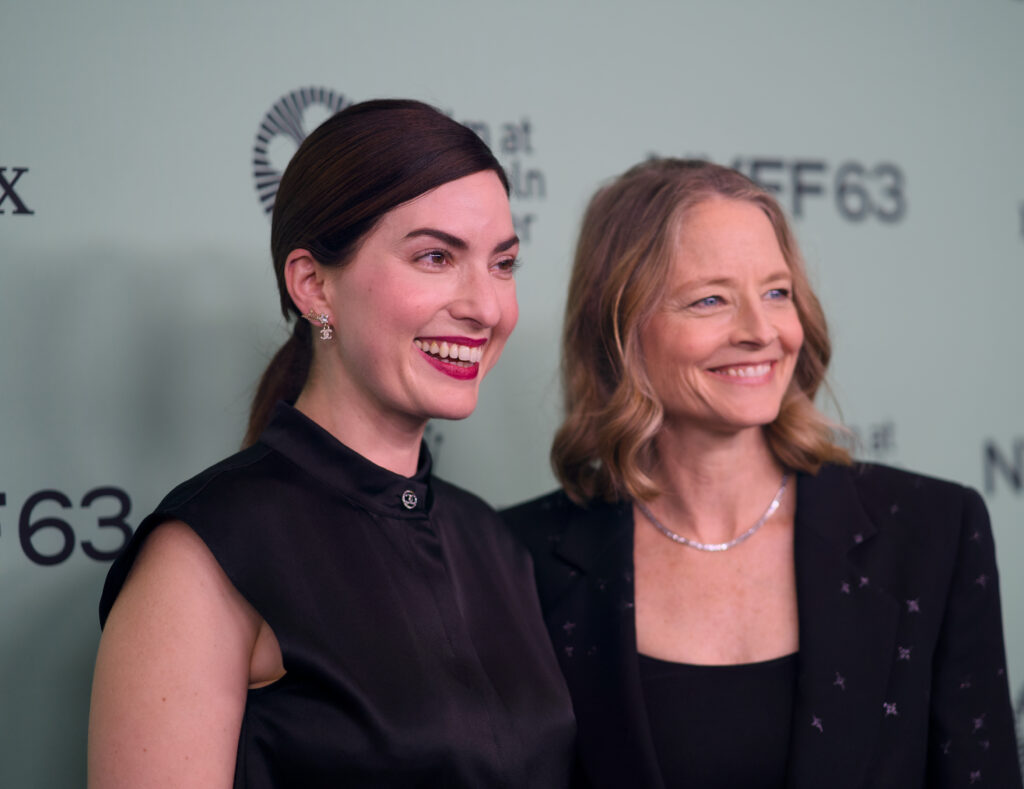
2. **_Taxi Driver_ and the Unintended Price of Early Acclaim**
In 1976, Jodie Foster took on a role that would indelibly mark her career and significantly alter her public perception: Iris, the 12-year-old prostitute in Martin Scorsese’s seminal film, *Taxi Driver*. This pivotal performance, which followed a minor supporting role in *Alice Doesn’t Live Here Anymore* (1974), was a deliberate strategic move by her mother. Recognizing the finite nature of child roles, her mother aimed to transition Foster into more mature, adult-oriented cinema. The intense and sensitive nature of the role necessitated a psychiatric assessment for Foster, along with the constant presence of a social worker on set, and even required her older sister Connie to serve as her stand-in for ually suggestive scenes.
Foster’s portrayal was a profound challenge and an artistic revelation for her as an actress. She later articulated the transformative impact of the role, stating, “It was the first time anyone asked me to create a character that wasn’t myself. It was the first time I realized that acting wasn’t this hobby you just sort of did, but that there was actually some craft.” This immersive dive into character creation, distinctly separate from her own identity, proved to be a life-changing experience, earning her an Academy Award nomination for Best Supporting Actress, two BAFTAs, and widespread critical acclaim for her nuanced performance.
The film itself became a cultural touchstone, winning the Palme d’Or at the Cannes Film Festival and unequivocally solidifying Foster’s status as a prodigious talent. However, the film’s lasting impact also brought an unforeseen and harrowing consequence, laying the groundwork for a deeply personal ordeal that would forever alter her relationship with privacy and public scrutiny. The complex legacy of *Taxi Driver* extended far beyond its artistic merits, intertwining with the very fabric of Foster’s private life in an unprecedented and often unwelcome way.
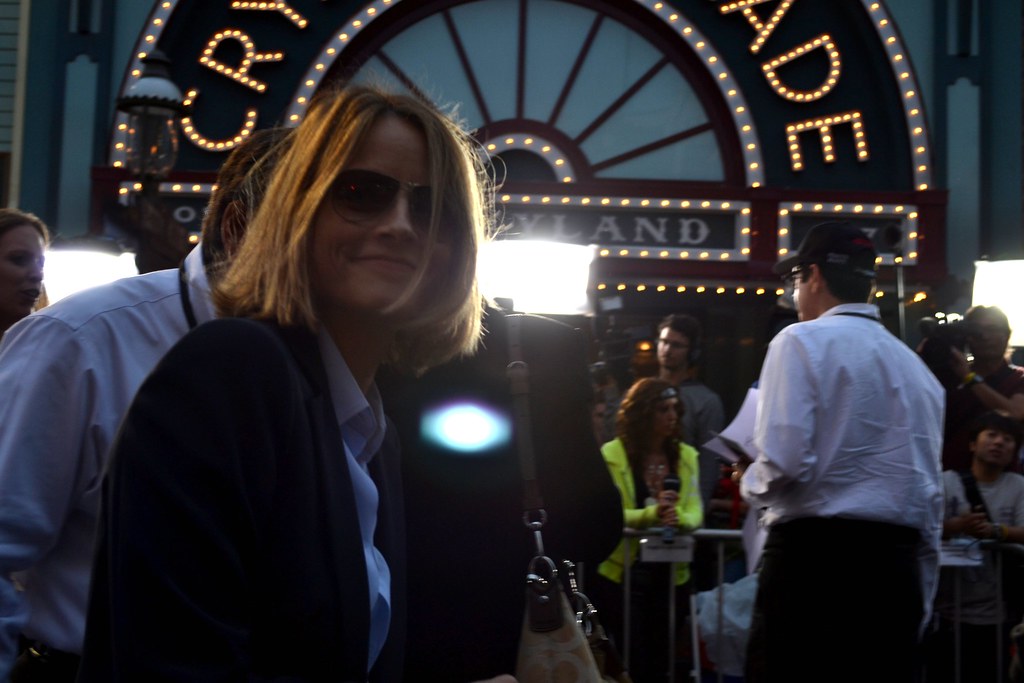
3. **The Yale Interlude: Seeking Sanctuary and Intellectual Depth**
Following her breakthrough year in 1976, which saw her achieve significant recognition for her roles in four distinct films, including *Taxi Driver* and *Freaky Friday*, Foster made a conscious and deliberate decision to prioritize her education. She enrolled at Yale University in 1981. This period was not merely a hiatus from acting, but a profound pursuit of intellectual growth and a desire to carve out a semblance of normalcy and anonymity away from the relentless glare of the Hollywood spotlight. At Yale, she chose to major in African-American literature, culminating in a thesis written under the esteemed guidance of Henry Louis Gates Jr., and ultimately graduated magna cum laude in 1985.
This interlude at Yale proved to be deeply transformative for Foster, profoundly shifting her perspective on her chosen profession. She openly confessed that she had previously viewed acting as an “unintelligent profession,” but her rigorous academic pursuits helped her realize a fundamental truth: “what I really wanted to do was to act and there was nothing stupid about it.” Her intellectual endeavors not only broadened her horizons but also served to validate her artistic calling, grounding her career in a deeper sense of purpose and a more robust, self-aware understanding of her craft.
Despite prioritizing her intensive studies, Foster continued to engage with filmmaking during her summer vacations, demonstrating her enduring commitment to her craft even amidst her academic pursuits. These projects included *O’Hara’s Wife* (1982), the television film *Svengali* (1983), the John Irving adaptation *The Hotel New Hampshire* (1984), and *The Blood of Others* (1984). While these films did not achieve widespread critical or commercial success, they underscored her dedication. Her return to Yale in 1993 to address the graduating class, and her subsequent reception of an honorary Doctor of Fine Arts degree in 1997, further emphasize the enduring significance of her university years in shaping her character and her career trajectory.
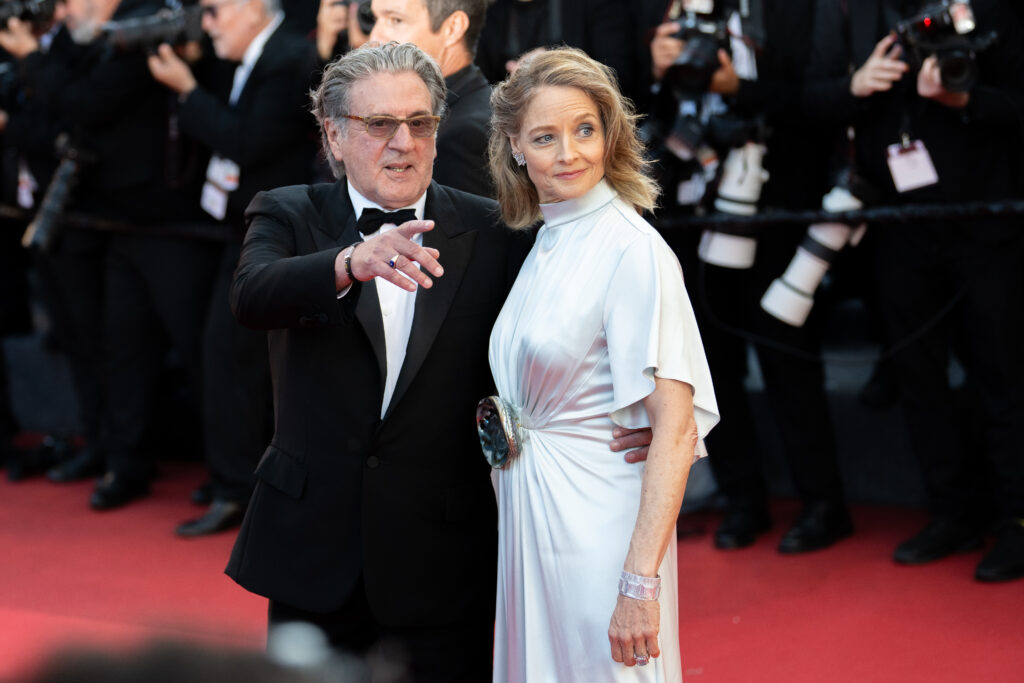
4. **The Hinckley Incident: A Stalker’s Obsession and the Quest for Privacy**
During her freshman year at Yale, Jodie Foster became the unwitting and tragic target of John Hinckley Jr., who had developed an intense and dangerous obsession with her after repeatedly watching *Taxi Driver*. His stalking culminated in the attempted assassination of United States President Ronald Reagan on March 30, 1981, with Hinckley explicitly claiming his motive was to impress Foster. This shocking and unprecedented event catapulted Foster into an unwanted and terrifying national spotlight, transforming her into a focal point of a major historical incident through absolutely no fault of her own.
The immediate aftermath of the Hinckley incident was characterized by intense, invasive media scrutiny and a profound disruption of her nascent college life. She found herself constantly accompanied by bodyguards while on campus, and her videotaped testimony was presented at Hinckley’s trial, where Judge Barrington D. Parker confirmed her complete innocence, stating she was “unwittingly ensnared.” This deeply traumatic experience, compounded by other stalkers she encountered during her time at Yale, indelibly solidified her deep-seated need for privacy and instilled an acutely cautious approach to managing her public image and personal safety.
Foster has, by and large, rarely spoken publicly about Hinckley, a deliberate and conscious choice to avoid being defined by the egregious actions of another. She once penned an essay, “Why Me?”, for *Esquire* in 1982 under the strict conditions of “no cover lines, no publicity and no photos,” further illustrating her desire for distance. In a 1999 interview, she acknowledged the incident’s major impact on her career choices, describing it as “a scarring, strange moment in history,” yet always deferring to the greater suffering of others affected, particularly James Brady, who was permanently disabled. This measured response exemplifies her steadfast refusal to sensationalize her trauma, instead emphasizing quiet resilience and a profound understanding of her own position within a much larger tragedy.

5. **The Accused: A Breakthrough into Adult Complexity and Control**
After graduating from Yale in 1985, Jodie Foster faced a particularly challenging period in her professional life, struggling to secure significant acting roles that matched her aspirations. Her initial post-college film, the neo-noir *Siesta* (1987), was rated a commercial failure, although her next project, the independent film *Five Corners* (1987), was better received and earned her an Independent Spirit Award. This transitional phase, marked by professional uncertainty, left her contemplating graduate studies and questioning her path in acting. It was during this pivotal juncture that she made the crucial decision to give acting “one last try” with *The Accused* (1988), a role that would prove to be her definitive breakthrough into complex, mature adult roles.
Foster’s searing portrayal of a rape survivor fighting for justice in *The Accused*, a film based on the real criminal case involving Cheryl Araujo, represented a profound departure from her earlier work as a child and teen actor. Despite initially being remembered as a “chubby teenager” and facing skepticism from producers, she was eventually cast after several more established actors turned down the challenging part, requiring her to audition twice. The filming process, particularly the harrowing five-day shoot of the central rape scene, was an intensely difficult and emotionally taxing experience for all involved, leaving Foster initially apprehensive about her performance’s reception and fearing it might even end her career.
Contrary to her profound fears, *The Accused* garnered widespread critical acclaim, with Foster’s performance being singled out for universal praise. Her powerful and raw depiction of a woman seeking justice earned her an Academy Award for Best Actress, a Golden Globe, and a National Board of Review award, unequivocally cementing her status as a formidable dramatic actress capable of tackling the most challenging and psychologically complex material. This transformative role not only revitalized her career but also signaled a clear direction towards projects of profound substance and social relevance, further reinforcing her intention to pursue meaningful work rather than simply chasing conventional fame, ultimately affording her greater artistic control and the ability to choose projects that resonated deeply with her evolving artistic vision.
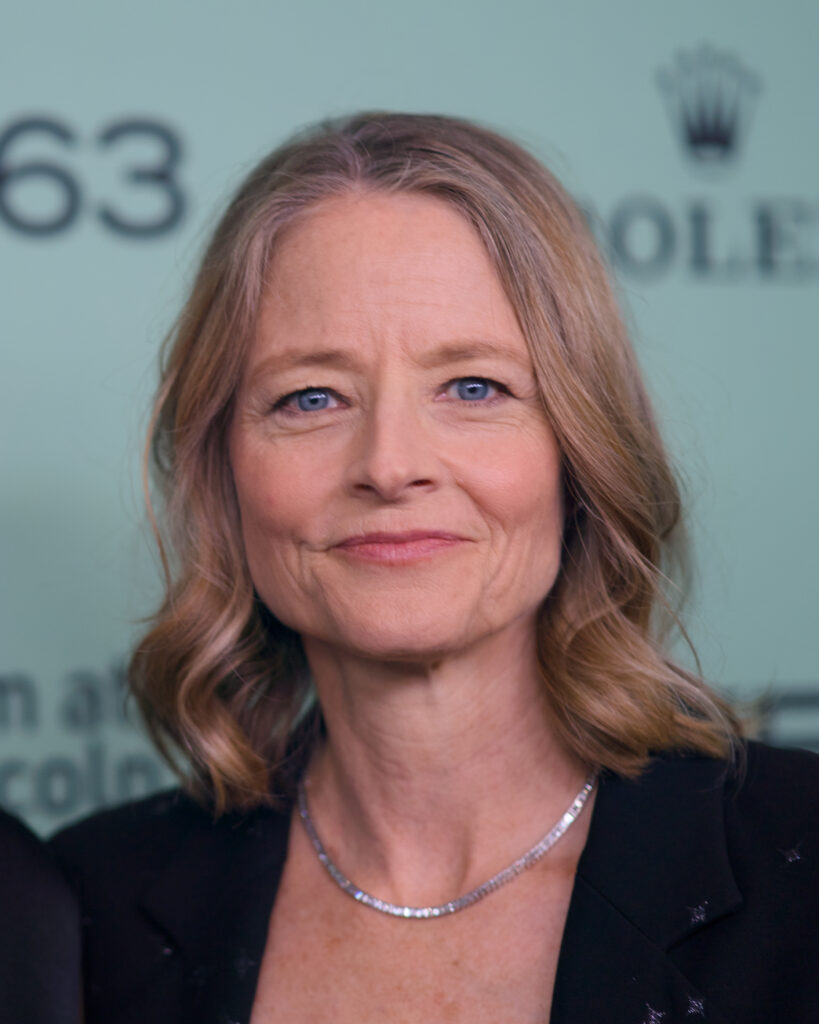
6. **_The Silence of the Lambs_: Crafting an Icon, Shaping a Legacy**
Following the profound triumph of *The Accused*, Jodie Foster solidified her position as a leading actress with her iconic portrayal of FBI trainee Clarice Starling in the 1991 psychological thriller, *The Silence of the Lambs*. Foster had been deeply drawn to the source novel upon its 1988 publication, recognizing in Starling “a real female heroine” whose strength derived not from physical prowess or brute force, but from intellect, resourcefulness, and psychological fortitude. This foresight and her passionate belief in the character’s unique strength even led her to attempt purchasing the film rights herself.
Despite her intense enthusiasm for the role, director Jonathan Demme initially harbored reservations about casting her, but was ultimately overruled by the film’s producers. This decision, in hindsight, proved to be an inspired one, with Demme later crediting Foster for her instrumental role in defining the character of Clarice Starling. Her nuanced performance captured the perfect balance of vulnerability and steely determination required, creating a character that resonated deeply with audiences and critics alike, making Starling one of her declared favorite and most enduring roles.
*The Silence of the Lambs* was an unprecedented critical and commercial success, grossing close to $273 million worldwide and achieving the remarkable feat of sweeping the top five Academy Awards, including Best Actress for Foster, Best Actor for Anthony Hopkins, and Best Picture. This made it one of the select few films in history to achieve such a clean sweep across all main categories. Despite some controversy regarding its portrayal of certain characters, the film remains a modern classic, with Clarice Starling recognized by the American Film Institute as one of the greatest film heroes. This iconic role not only confirmed Foster’s immense talent but also allowed her to powerfully shape a narrative about female strength and intellect in mainstream cinema, aligning perfectly with her preference for roles that offered both artistic depth and significant cultural impact.
Her subsequent wins of a Golden Globe and a BAFTA for *Silence* cemented a remarkable period of sustained critical recognition, further establishing her as an actress of significant cultural and artistic influence. This period also saw her take a small, yet notable, role as a worker in Woody Allen’s *Shadows and Fog* (1991), fulfilling a long-held desire to collaborate with the acclaimed director. This embrace of variety in her choices, from an FBI agent to a sex worker, underscored her versatility and her drive to explore diverse, complex characters, demonstrating an artistic fearlessness that would continue to define her remarkable career trajectory.
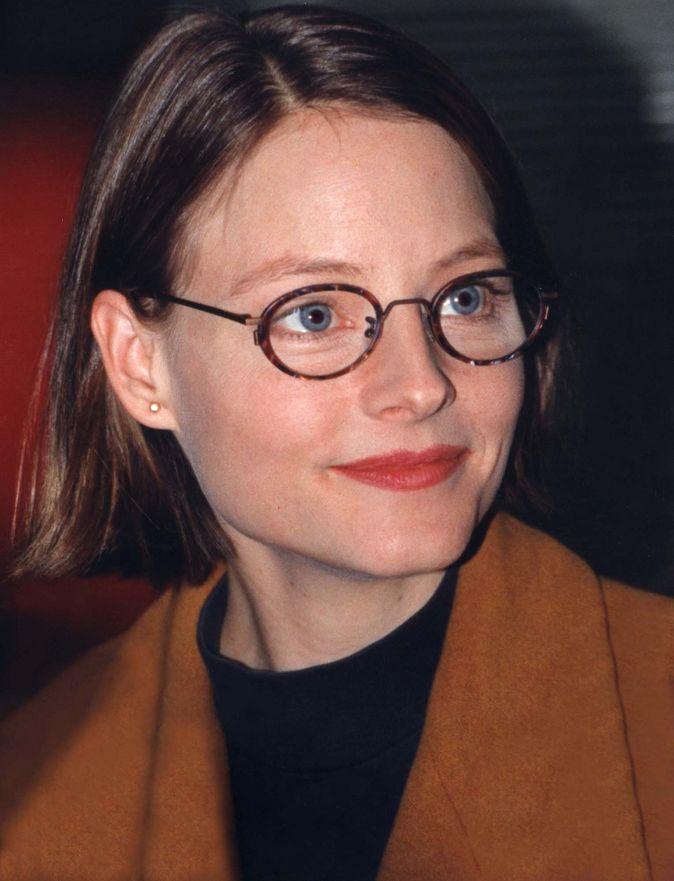
7. **Venturing Behind the Camera: Directorial Ambitions and Early Productions**
The unparalleled triumph of *The Silence of the Lambs* did not just solidify Jodie Foster’s stature as a formidable actress; it also catalyzed her long-held ambitions to step into the director’s chair. Her directorial debut, *Little Man Tate*, released in October 1991, was a poignant drama exploring the struggles of a child prodigy grappling with profound difference, a theme likely echoing her own unique childhood experience.
Foster, who directed and co-starred as the prodigy’s working-class single mother, discovered the script in the “slush pile” at Orion Pictures. She meticulously shaped the narrative to imbue it with her accumulated wisdom, stating her desire to include “the 10 philosophies I’ve accumulated in the past 25 years.” This profound personal investment transformed the project. While some critics found it “less adventurous,” others, like Roger Ebert, lauded it as “the kind of film you enjoy watching,” and it achieved moderate box office success.
Building on this, Foster strategically established her own production company, Egg Pictures, in 1992, granting her greater creative autonomy. This subsidiary was envisioned to produce a range of films, a clear declaration of her commitment to shaping narratives. Her second directorial endeavor, *Home for the Holidays* (1995), a black comedy, garnered mixed critical response and did not achieve commercial success, yet reinforced Foster’s persistent drive to explore diverse storytelling avenues and hone her craft.
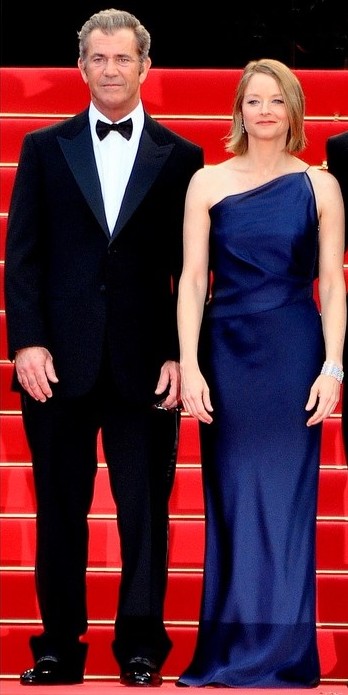
8. **Strategic Choices and Evolving Portrayals: Defining Roles of the 1990s**
The 1990s, following her double Academy Award wins, saw Jodie Foster meticulously curate roles that challenged and expanded her on-screen presence. In *Sommersby* (1993), she embraced a more “conventionally feminine” role, portraying a woman harboring deep suspicions about her husband’s true identity after his Civil War return. This period film, co-starring Richard Gere, demonstrated her versatility within a historical context.
Her venture into the Western comedy genre with *Maverick* (1994) further showcased her range. Opposite Mel Gibson and James Garner, Foster played a cunning con artist, a character blending wit, charm, and intelligence. Both *Sommersby* and *Maverick* proved commercially successful, affirming her ability to draw audiences even in roles that diverged from her established dramatic intensity.
However, it was *Nell* (1994), an Egg Pictures production she produced and starred in, that truly encapsulated her commitment to exploring profound human experiences. In the titular role, Foster depicted a woman raised in complete isolation, communicating in her own invented language. The film, based on Mark Handley’s play *Idioglossia*, captivated Foster with its central theme of “otherness.” Despite mixed reviews, *Nell* was a commercial success and earned Foster significant accolades, including a Screen Actors Guild Award and Academy and Golden Globe nominations.
Her commitment to challenging roles continued with *Contact* (1997), a science fiction film based on Carl Sagan’s novel, where she starred as a scientist searching for extraterrestrial life. The film was a commercial success and earned her a Saturn Award and a Golden Globe nomination. Her final film of the decade, *Anna and the King* (1999), saw her paid $15 million, underscoring her pursuit of artistic depth and cultural impact.
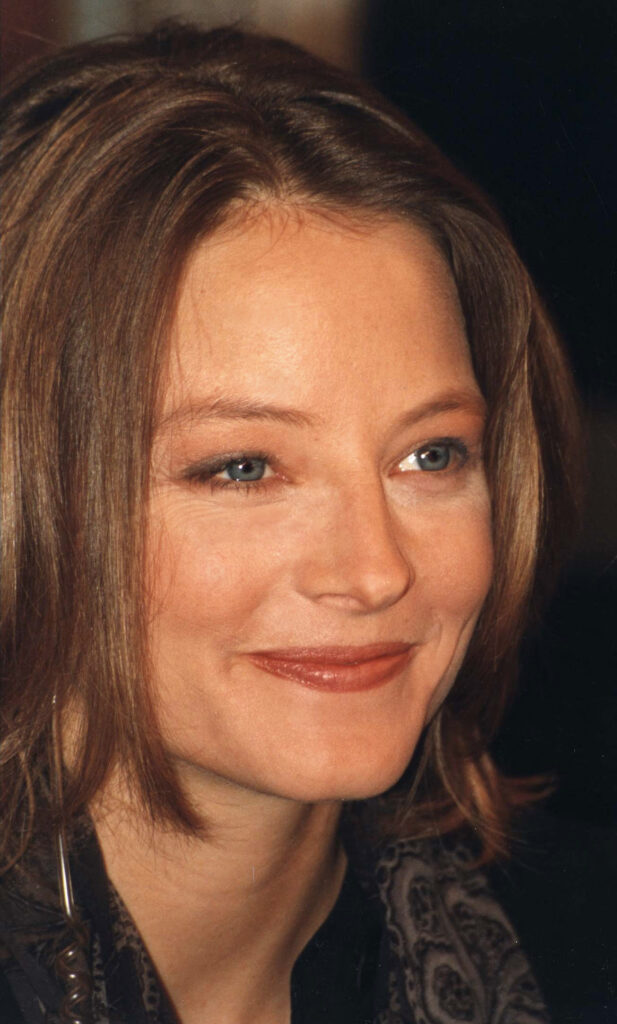
9. **Navigating the 2000s: Setbacks, Resurgence in Thrillers, and Genre Exploration**
The dawn of the new millennium presented Jodie Foster with a period of significant professional flux, marked by aspirations and unforeseen challenges. She declined reprising Clarice Starling in *Hannibal* (2001), opting instead to concentrate on a new directorial project, *Flora Plum*. This ambitious 1930s circus drama was tragically shelved after Russell Crowe sustained an injury. Foster’s repeated, unsuccessful attempts to revive it spoke volumes about her dedication.
Further complicating this period was her interest in directing a biographical film about Nazi film director Leni Riefenstahl, an idea Riefenstahl herself rejected. These disappointments, coupled with her candid acknowledgment that producing was “just a really thankless, bad job,” led to the decision to shut down Egg Pictures in 2001. Yet, the company’s final production, *The Dangerous Lives of Altar Boys* (2002), premiered to positive reviews at Sundance, offering a bittersweet conclusion.
It was in this climate of uncertainty that Foster seized an opportunity: starring in David Fincher’s thriller *Panic Room* (2002). Stepping into the lead at a week’s notice after Nicole Kidman’s injury, Foster portrayed a resourceful woman protecting her daughter from burglars. The film was an immediate box office hit, securing her most successful opening weekend at the time, and garnered largely positive reviews for its suspense and her compelling performance.
This success ushered in a renewed focus on the thriller genre. *Flightplan* (2005) saw her daughter mysteriously vanish on a plane, achieving global box office success. Spike Lee’s acclaimed *Inside Man* (2006) cast her in a complex role during a high-stakes Wall Street bank heist. *The Brave One* (2007) drew comparisons to *Taxi Driver* as she played a New Yorker who transforms into a vigilante, earning her a sixth Golden Globe nomination. She also ventured into children’s adventure with *Nim’s Island* (2008), a commercial success that showed her lighter side.
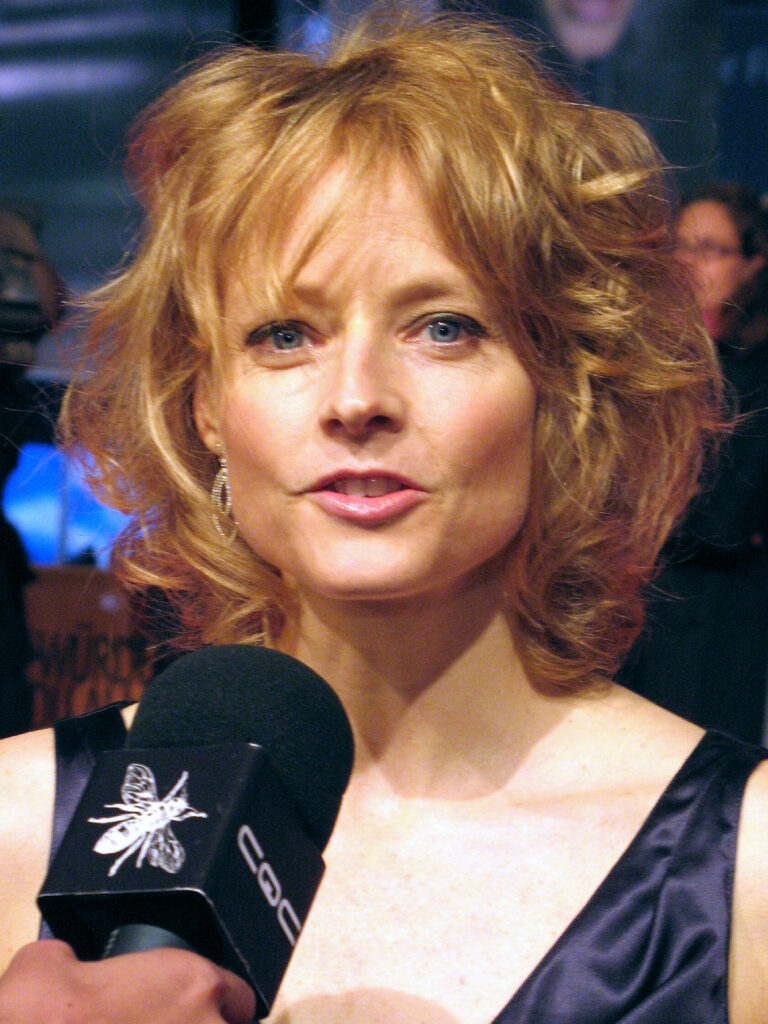
10. **A Renewed Focus: Directing in the 2010s and Television Impact**
As the 2010s unfolded, Jodie Foster deliberately shifted her career’s fulcrum, prioritizing her long-standing passion for directing. This decade saw her further solidify her vision behind the camera with her third feature film as director, *The Beaver*, released in March 2011. The film, a poignant drama about a depressed man adopting a beaver hand puppet, reunited her with Mel Gibson, with Foster also portraying his wife.
The production of *The Beaver* proved to be “probably the biggest struggle of my professional career,” a candid admission from Foster, due to both the film’s heavy emotional subject matter and the considerable controversy surrounding Gibson. Despite these challenges, which contributed to the film’s mixed reviews and box office failure, Foster’s unwavering commitment highlighted her artistic tenacity.
Beyond feature films, Foster significantly expanded her directorial footprint into prestige television. She returned to television directing for the first time since the 1980s, helming critically acclaimed episodes like “Lesbian Request Denied” (2013) for *Orange Is the New Black*, which earned her a coveted Primetime Emmy Award nomination.
Her television directing credits further extended to “Chapter 22” (2014) for *House of Cards*, and the chilling “Arkangel” (2017) for *Black Mirror*. These ventures showcased her adaptability across diverse genres and platforms, garnering her two Directors Guild of America Award nominations, cementing her reputation. Her fourth feature film, the hostage drama *Money Monster*, premiered at Cannes in 2016, a moderate commercial success that further illustrated her persistent vision.
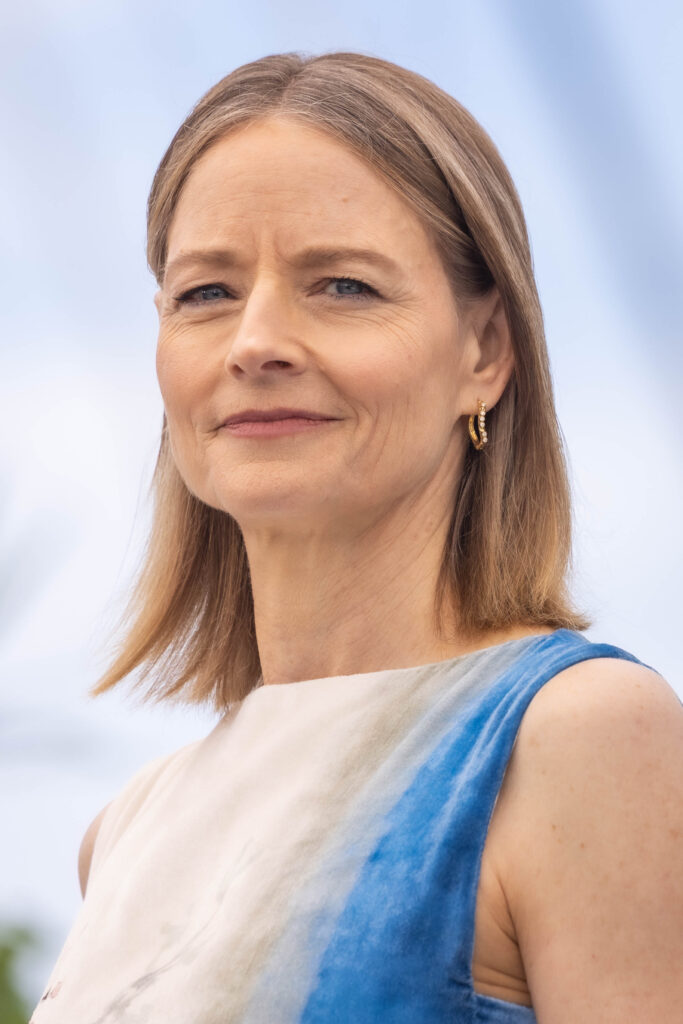
11. **Sustained Artistic Vitality: Later Acclaim and Continued Evolution (2020s)**
As Jodie Foster navigated the close of the 2010s and embraced the 2020s, her career exhibited remarkable sustained artistic vitality, marked by selective yet impactful acting roles and continued directorial capabilities. In 2018, she starred alongside Sterling Brown in the dystopian film *Hotel Artemis*, portraying Nurse Jean Thomas, who runs a hospital for criminals. Although the film faced commercial and critical disappointment, Foster’s performance was widely lauded, with Mick LaSalle noting she brought “a quality of having seen the absolute worst in people.”
The 2020s commenced with Foster directing the finale of the science fiction drama *Tales from the Loop*. Her acting prowess remained undiminished, evidenced by her role in the legal drama *The Mauritanian* (2021). Her powerful portrayal of the lawyer of a Guantanamo Bay detention camp prisoner resonated deeply, earning her a Golden Globe for Best Supporting Actress. This triumph was swiftly followed by the prestigious Honorary Palme d’Or at the 2021 Cannes Film Festival.
Further testament to her unflagging commitment came with her appearance in the 2023 Netflix biopic *Nyad*, where she played Bonnie Stoll. This performance garnered her another Academy Award nomination for Best Supporting Actress, showcasing her ability to inhabit complex, real-life characters late in her career. Most recently, Foster headlined the fourth season of HBO’s critically acclaimed anthology series *True Detective: Night Country* (2024), a role for which she earned both a Primetime Emmy Award and a Golden Globe Award, reinforcing her status as an evergreen talent.
Looking ahead, her upcoming role in the 2025 French-language psychological mystery, *Vie privée* (*A Private Life*), marks her first French-speaking lead role. This highlights her fluency in French and underscores her continuous pursuit of diverse international projects, ensuring her legacy as a truly global cinematic artist.
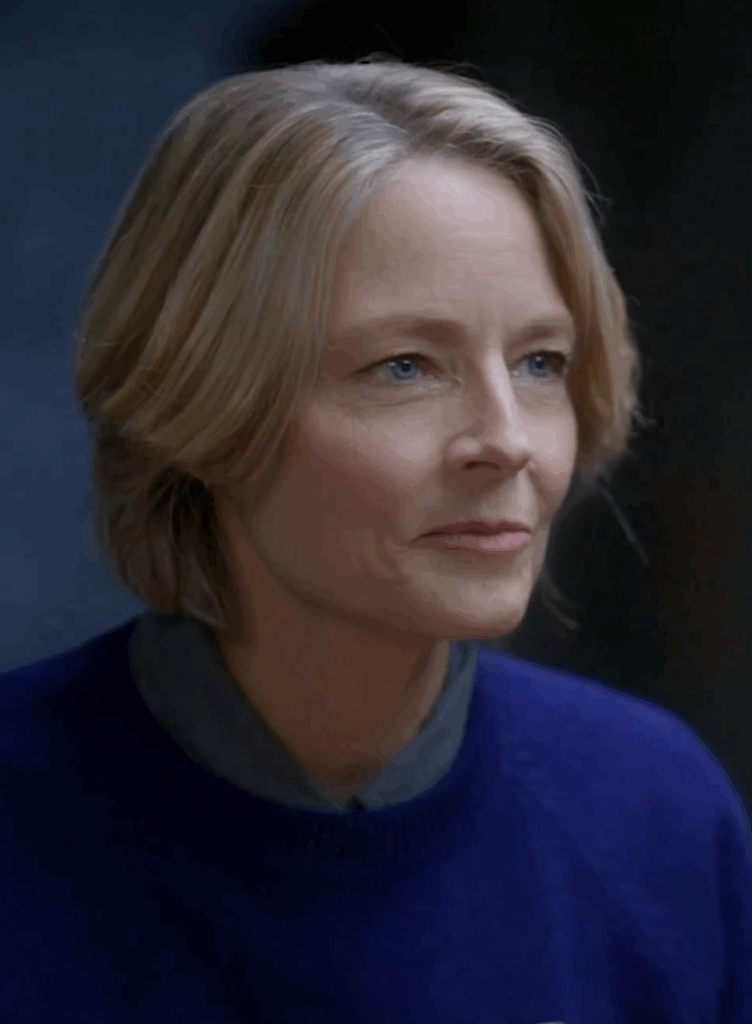
12. **The Enduring Enigma: Privacy, Partnership, and a Legacy of Authentic Selfhood**
Jodie Foster’s journey through Hollywood has been uniquely defined not just by her formidable talent, but by an unwavering, fiercely guarded approach to her personal life. This deliberate construction of an “art of a private public life,” rooted in her early experiences with fame and the Hinckley incident, has consistently guided her choices. She has masterfully navigated the intrusive gaze of celebrity culture, creating a sanctuary for her authentic self and loved ones.
Central to this private life has been her enduring partnerships. She met producer Cydney Bernard on the set of *Sommersby* in 1993, forging a relationship that lasted until 2008. Together, they welcomed two sons, Charles (born 1998) and Christopher (born 2001), with Foster as their biological mother, the biological father’s identity remaining a protected private detail. This commitment to family, shielding her children from invasive public life, has been a consistent thread in her narrative.
Foster’s ual orientation, a subject of public discussion since the early 1990s, was acknowledged on her own terms and timetable. In 2007, she publicly recognized her 14-year relationship with Bernard during a speech. A more definitive, yet nuanced, address came in 2013 when she received the Cecil B. DeMille Award. While not explicitly using “gay” or “lesbian,” her speech was widely interpreted as her public coming out, delivered with grace and a powerful assertion of self-acceptance.
In 2014, Foster married actress and photographer Alexandra Hedison, further affirming her commitment to a life lived openly and authentically. Her enduring legacy is thus not solely measured by her countless accolades—including two Academy Awards and an Honorary Palme d’Or—but equally by her profound integrity. She has consistently demonstrated that profound artistic achievement and a fiercely protected private life are not mutually exclusive, proving that true power lies in choosing one’s own narrative. Jodie Foster remains an incandescent talent, a director with a distinct voice, and above all, a beacon of self-possession in an industry often consumed by its own glare.


